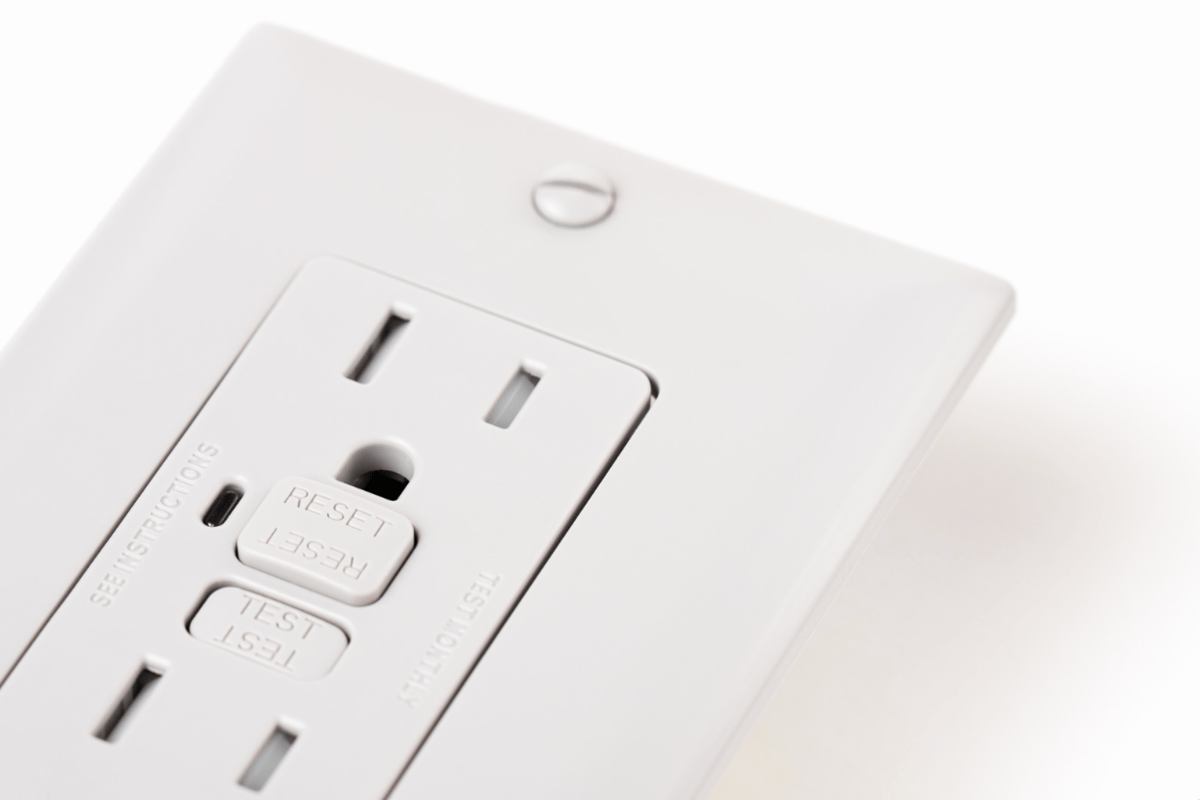Key Takeaways:
- Electrical troubleshooting helps identify hidden problems before they become dangerous or expensive.
- Common issues include circuit overloads and dead outlets.
- Signs like burning smells or buzzing sounds mean it’s time to take action.
- For safe and reliable service in McKinney or Dallas, trust W3 Electric’s licensed electricians.
The average home in McKinney was built in 2003, so homeowners might assume their electrical systems are trouble-free. However, even relatively new homes can develop issues over time.
The best way to handle problems as they arise is through regular troubleshooting. Whether your circuit breaker keeps tripping or you’ve noticed strange smells near an outlet, electrical troubleshooting is essential to catch and fix issues before they become costly or dangerous.
What is Electrical Troubleshooting and Why is it Essential?
Electrical troubleshooting is the process of identifying, diagnosing, and fixing problems within an electrical system. It systematically tests circuits, outlets, switches, wiring, and devices to find the source of issues like power loss, frequent breaker trips, flickering lights, or unusual smells and sounds. It’s how electricians figure out what’s wrong and why it’s happening so they can fix it safely and effectively.
Common steps in electrical troubleshooting include:
- Using tools like multimeters to test voltage and continuity
- Inspecting for visible damage or loose connections
- Isolating faulty components or overloaded circuits
- Replacing or repairing damaged wiring, outlets, or devices
- Regular troubleshooting helps prevent fires, reduce repair costs, and keep your home or business safe and functional.
Here’s why this matters for your home:
- It prevents damage: Left unchecked, minor issues like loose wiring or overloaded circuits can lead to appliance failure or system-wide outages.
- It improves safety: Faulty wiring is a major cause of electrical fires, and troubleshooting helps catch problems early.
- It saves money: Fixing a tripping breaker or faulty outlet now costs much less than repairing fire damage or replacing damaged appliances later.
Troubleshooting should be a regular part of your home maintenance plan in McKinney.
Common Issues Identified Through Electrical Troubleshooting
One of the most frequent problems uncovered during troubleshooting is circuit overload. This happens when too many devices draw power from the same electrical circuit, pushing it beyond capacity. Overloaded circuits can heat up, trip breakers, or even start fires.
Warning signs of a circuit overload include:
- Frequent tripping of circuit breakers.
- Lights dim or flicker when other devices are turned on.
- Warm or hot outlets and wall plates.
- Buzzing sounds from outlets or switches.
Other common problems identified through electrical troubleshooting include:
- Loose or dead outlets can result from worn internal contacts or wiring issues.
- Faulty switches: A light switch that doesn’t consistently work or feels warm to the touch could signal a wiring issue.
- Old or damaged wiring: In older homes, aluminum or deteriorated insulation can cause serious safety issues.
By addressing these issues early, homeowners can avoid the hidden costs of damaged electronics, reduced energy efficiency, or even full panel replacements.
Signs of Electrical Problems in Your Home
It’s not always obvious when something’s wrong, but your home may give you signals before the issue becomes critical.
Here are some clear signs of electrical problems:
- A persistent burning smell near outlets or appliances.
- Circuit breakers that trip frequently or immediately after resetting.
- Buzzing or humming sounds coming from outlets, switches, or walls.
- Outlets or switches that feel warm or vibrate slightly to the touch.
- Discolored, blackened, or scorched outlet covers.
- Lights that flicker, dim, or behave inconsistently.
- Shocks or tingling sensations when touching appliances or switches.
These are more than just annoyances. They could point to a serious issue with your home’s wiring or electrical panel. In many cases, these problems are early warnings of something more dangerous, like an electrical fire hazard.
How to Prevent Electrical Fires with Early Action
According to the U.S. Fire Administration, electrical malfunctions are a leading cause of residential fires, especially in older homes or homes with DIY wiring.
To prevent electrical fires:
- Schedule regular electrical inspections: A licensed electrician can detect issues you wouldn’t catch alone.
- Don’t ignore the warning signs: If something smells off, trips frequently, or behaves strangely, don’t wait.
- Avoid overloading outlets or power strips: Plugging in too many devices can overheat a circuit.
- Upgrade old wiring and panels: Many McKinney homes were built before today’s electrical standards. Consider an upgrade if your house still has a fuse box or an outdated breaker panel.
- Use appliances properly: Never use damaged or frayed extension cords as permanent solutions.
These steps protect your home, lower your insurance premiums, and improve energy efficiency.
When to Call for Electrical Repair in McKinney or Dallas
While fixing a minor electrical issue independently might be tempting, a licensed professional should handle most electrical repairs. Electricity is dangerous, and DIY repairs often lead to more problems or severe injury.
You should call for electrical repair in McKinney or Dallas if:
- You’ve noticed any of the warning signs listed above.
- Your lights or appliances are behaving unpredictably.
- You plan to install high-power devices (like EV chargers or hot tubs).
- Your home still uses outdated panels, wiring, or aluminum conductors.
Choosing a trusted local electrician means knowing that your repair is done safely, up to code, and with the right tools.
Why W3 Electric Is the Go-To for Troubleshooting in McKinney
W3 Electric is a trusted name in electrical repair and troubleshooting across McKinney and the greater Dallas area. We understand the local building codes, weather conditions, and common problems affecting North Texas homes.
Here’s why homeowners call us first:
- Local expertise: Our team lives and works in McKinney. We know the neighborhood and the unique challenges that come with local homes.
- Licensed electricians: We’re fully licensed, bonded, and insured, with no shortcuts and no guessing.
- Advanced diagnostic tools: We use professional-grade tools to identify problems accurately and quickly.
- Transparent pricing: You’ll always know the cost before we start work—no surprises.
- Prompt and courteous service: We arrive on time and treat your home like ours.
Whether you need a quick repair or a full inspection, call W3 Electric. We are ready to help.
Protect Your Home by Taking Action Today
Electrical problems don’t fix themselves. They usually get worse and more expensive the longer they go unchecked. But with regular troubleshooting, you can catch issues early, prevent fires, and save money on repairs and energy bills.
FAQ: Electrical Troubleshooting for Homeowners
How often should I schedule electrical inspections?
We recommend a full inspection every 3 to 5 years or immediately if you’re experiencing signs of trouble.
What’s the difference between a tripped breaker and a circuit overload?
A breaker trips when a circuit is overloaded. This means too much power is being drawn. If it happens often, you need a professional to inspect the system.
Can I troubleshoot an electrical issue myself?
Checking your breaker panel or unplugging devices from an overloaded circuit is fine. Leave the deeper diagnosis to a licensed electrician.
How do I know if my home’s wiring is outdated?
If your home was built before the 1980s and hasn’t been rewired, it may have outdated or unsafe wiring. Look for flickering lights, old two-prong outlets, or warm switch plates.








